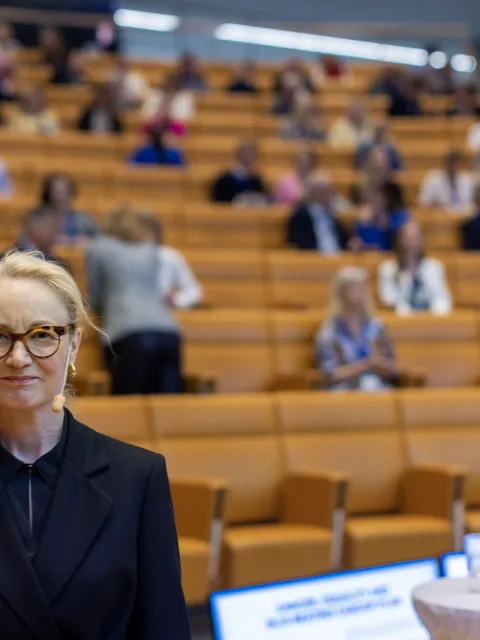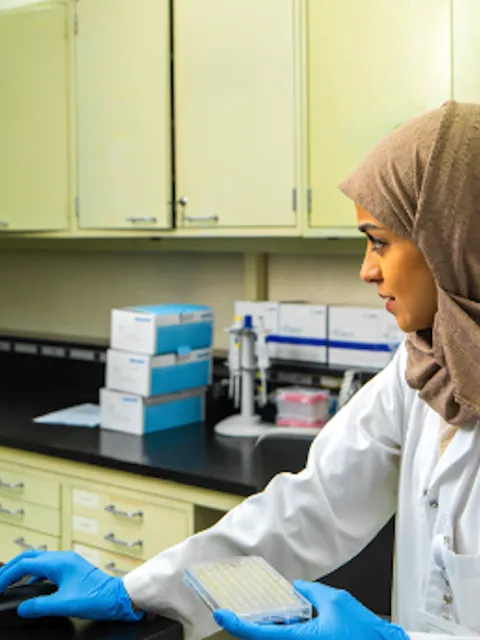UICC called for further investment in prevention, early detection, treatment and palliative care - 72nd World Health Assembly
21 May 2019 | Geneva, Switzerland - Discussions kicked off in earnest today, with Member States examining the WHO’s budget for 2020-2021 as well as the new framework Dr Tedros Adhanom, Director General of the World Health Organization has proposed to analyse how effectively WHO and Member States are meeting their goals. While the proposed budget includes a 5% increase in funding for NCDs (Non-Communicable Diseases), it is not clear where and how this will be divided up across the new WHO structure.

Also on the agenda was a report on progress towards the health-related Sustainable Development Goals. In our joint statement with the NCD Alliance, UICC called for further investment in prevention, early detection, treatment and palliative care as weak health systems continue to undermine progress. The statement also urged WHO member states to invest in health information systems, such as cancer registries, in order to inform policy priorities and drive improvements in equitable access to care.
Alongside the official discussion, UICC staff attended multiple side events that covered:
Beyond the headlines: What will it take to address the growing cancer burden?
A panel of global and national leaders, representing patients, public and private sectors, widely discussed what must be done to improve cancer control in an afternoon session at the Intercontinental Hotel on 'Beyond the headlines: What will it take to address the growing cancer burden?' Responses struck at a number of key issues, from the need for improved data, infrastructure and human resources to the potential of innovative technologies and personalised medicines, with a call to the industry to listen to the needs of patients and a call to the WHO to hold government to account without imposing a one-size-fits-all approach to decisions taken nationally on this complex disease, cancer. This can be done through a stepwise approach that identifies local solutions and encourages all stakeholders to participate in partnership toward reducing the cancer burden and achieving UHC.
"Including cancer in UHC Is possible. However, the traditional way won’t get us there. We need innovative approaches to cancer care in different healthcare settings."
– Prof. Patsy Yates Professor of Nursing at Queensland University of Technology, and President International Society of Nurses in Cancer Care, Australia
Every breath can do damage: The urgency of Air Pollution Action
This event highlighted the crucial importance of tackling air pollution as part of the global NCD agenda. Air pollution is a risk factor for a range of NCDs and kills 7 million people per year worldwide. Shockingly, 90% of the population breathes unhealthy air, and therefore this represents a leading risk factor for death and disease, including cancer. Multi-sectoral collaboration should be in the centre of discussions to address unmet needs for robust reliable data, showing the short-term but also long-term impact on health. In addition, communication is key to raise awareness and empower the community and countries. It is suggested that a framework on air pollution as established for Tobacco could be a solution to tackle this global health issue.
"Air pollution is not an inevitable consequence of development".
– Daniel Kass, senior vice president for environmental health, Vital Strategies
Catalyzing Pathways for financing and partnerships for global NCDs
Bringing together leaders from across the NCD movement, this symposium was comprised of two panels looking at the global NCD financing landscape, and potential actions that the UN, civil society and private sector could take to address the chronic underfunding of NCDs globally.
Ilona Kickbush, Director of the Global Health Centre, Graduate Institute of International and Development Studies, opened the first panel by highlighting that while financing is important, we can also see it as a tracer for political action and that we need to drive the political decisions to increase financing for NCDs.
The participants went on to explore the potential role of a catalytic fund for NCDs, proposed in the report of the High-level Commission on NCDs, and where and how ministers of finance could be encouraged and cajoled into taking action. The second panel looked more at the activities already underway to improve the financing for NCDs, including the work of the inter-agency task force on NCDs in supporting countries to develop national costing plans. Alongside this, Gene Buckman from Partners in Health flagged the importance of taking action beyond the ‘big four’ of NCDs and warned against a market approach that may only address the diseases of the rich.
Palliative care and Universal Health Coverage
Palliative care is an essential component of Universal Health Coverage and UICC supported the side event with Worldwide Hospice Palliative Care Alliance and the International Federation on Ageing which focused on operationalizing palliative care within health systems as part of UHC. The Chair, Dr Mariangela Simao, the Assistant Director-General of Prequalification and Technology Assessment, introduced the concept and principles of palliative care, the palliative care resolution adopted by the World Health Assembly in 2014 and the Lancet Oncology Commission on palliative care.
Malaysia and Panama, who co-sponsored the side event, provided concrete examples of how they are working to integrate palliative care into health service delivery particularly through primary health care. The Minister of Health from Malaysia highlighted the disparities in access to palliative care in the country where most services are limited to larger urban areas so that only 10% of palliative care needs are being met. They have therefore put in place palliative care services in all major hospitals and working to integrate it into the primary care system, recognising the preference of patients in their country context to be cared for at home.
The representative of Panama highlighted the human rights aspects of palliative care. Panama had a leading role in the 2014 WHA palliative care resolution and has prioritised access to palliative care and pain relief in the country. The delegate from Panama emphasized that optimal legislation on access to pain medication, particularly opioids, is not enough. We also need to work on beliefs, attitudes and practices to improve access and in this regard, we must also work in the educational field with integrating palliative care into pre and in-service medical and nursing curricula. The participants also heard the patient perspective from Dr Stephn Watiti from Uganda who talked about his own journey as an HIV positive person who has required palliative care services for HIV but also for cancer and meningitis. Dr Felicia Knaul, Chair of the Lancet Commission on Pain and Palliative care highlighted the findings of the report and provided a snapshot of the availability of pain relief medications across regions. WHO has developed new health system guidance on palliative care and pain relief and integration into primary care services.
For immediate updates throughout WHA (#WHA72) please follow @uicc on Twitter or watch the 72nd World Health Assembly live here.
Last update
Friday 07 June 2019
